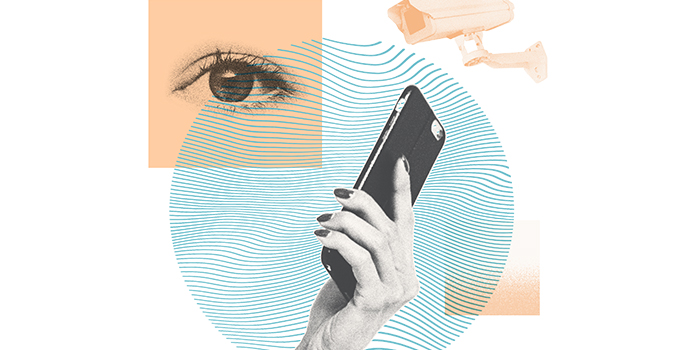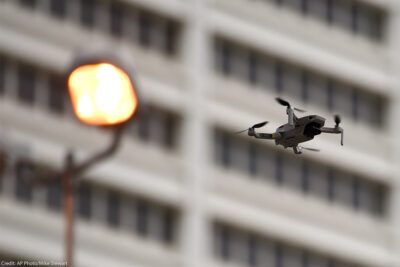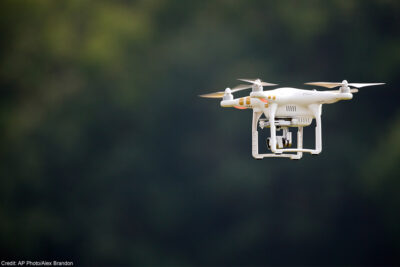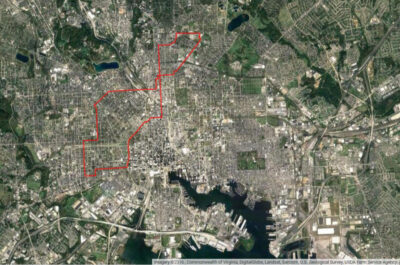Domestic Drones
The äØæÆòÆóçworks in courts, legislatures, and communities to defend and preserve the individual rights and liberties that the Constitution and the laws of the United States guarantee everyone in this country.

The Latest
Explore More
What's at Stake
U.S. law enforcement is greatly expanding its use of surveillance drones, and private actors are also seeking to use the technology for personal and commercial use.
Drones have many beneficial uses, including in search-and-rescue missions, scientific research, mapping, and more. But deployed without proper regulation, drones equipped with facial recognition software, infrared technology, and speakers capable of monitoring personal conversations would cause unprecedented invasions of our privacy rights. Interconnected drones could enable mass tracking of vehiôÙcles and people in wide areas. Tiny drones could go completely unnoticed while peering into the window of a home or place of worship.
°Ï°É¯ªÝ¿ÝÞƒÝݶݶý¿ýå°ÎÝÞä»ô have been the subject of fierce debate among both legislators and the public, giving rise to an impressive amount of state legislationãproposed and enactedãto protect individualsã privacy. Uniform rules should be enacted to ensure that we can enjoy the benefits of this new technology without bringing us closer to a ãsurveillance societyã in which our every move is monitored, tracked, recorded, and scrutinized by the government.
The äØæÆòÆóçrecommends the following safeguards:
- Usage Limits: A drone should be deployed by law enforcement only with a warrant, in an emergency, or when there are specific and articulable grounds to believe that the drone will collect evidence relating to a specific criminal act.
- Data Retention: Images should be retained only when there is reasonable suspicion that they contain evidence of a crime or are relevant to an ongoing investigation or trial.
- Policy: Usage policy on drones should be decided by the publicãs representatives, not by police departments, and the policies should be clear, written, and open to the public.
- Abuse Prevention and Accountability: Use of domestic drones should be subject to open audits and proper oversight to prevent misuse.
- Weapons: Domestic drones should not be equipped with lethal or non-lethal weapons.
U.S. law enforcement is greatly expanding its use of surveillance drones, and private actors are also seeking to use the technology for personal and commercial use.
Drones have many beneficial uses, including in search-and-rescue missions, scientific research, mapping, and more. But deployed without proper regulation, drones equipped with facial recognition software, infrared technology, and speakers capable of monitoring personal conversations would cause unprecedented invasions of our privacy rights. Interconnected drones could enable mass tracking of vehiôÙcles and people in wide areas. Tiny drones could go completely unnoticed while peering into the window of a home or place of worship.
°Ï°É¯ªÝ¿ÝÞƒÝݶݶý¿ýå°ÎÝÞä»ô have been the subject of fierce debate among both legislators and the public, giving rise to an impressive amount of state legislationãproposed and enactedãto protect individualsã privacy. Uniform rules should be enacted to ensure that we can enjoy the benefits of this new technology without bringing us closer to a ãsurveillance societyã in which our every move is monitored, tracked, recorded, and scrutinized by the government.
The äØæÆòÆóçrecommends the following safeguards:
- Usage Limits: A drone should be deployed by law enforcement only with a warrant, in an emergency, or when there are specific and articulable grounds to believe that the drone will collect evidence relating to a specific criminal act.
- Data Retention: Images should be retained only when there is reasonable suspicion that they contain evidence of a crime or are relevant to an ongoing investigation or trial.
- Policy: Usage policy on drones should be decided by the publicãs representatives, not by police departments, and the policies should be clear, written, and open to the public.
- Abuse Prevention and Accountability: Use of domestic drones should be subject to open audits and proper oversight to prevent misuse.
- Weapons: Domestic drones should not be equipped with lethal or non-lethal weapons.




